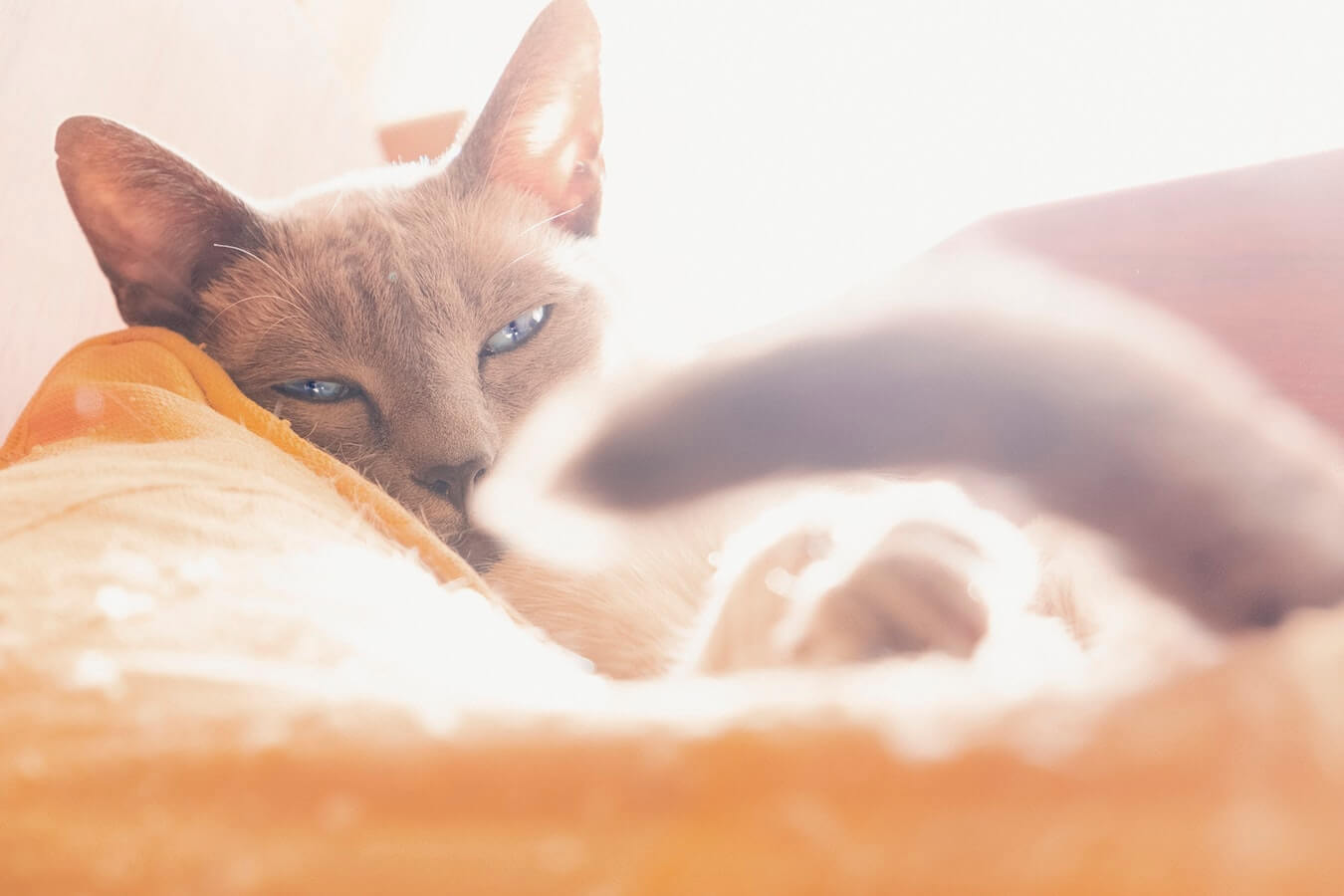
Being primarily meat-eaters, one must wonder whether cats can eat fruits. If you own a cat, you know how curious they are. They are fascinated by what their owners eat, and want to eat the same, unaware of the fact that it might be bad for them.
Each cat is different and has different dietary requirements. Therefore, you must consult with your vet before you try feeding anything new to your pet.
These furry little creatures should generally eat cat food because that contains the nutrients and energy that they require. However, you will be glad to know that there are some fruits that you can easily give your cat if they have a taste for it.
On hot summer days, you might want to feed that delicious watermelon you are eating to your feline friend. But, can cats eat watermelon? Let’s find out.
Table of Contents
What Are Watermelons And What Nutritional Elements Do They Contain?
Watermelon has its roots in Africa but is now a favorite summer fruit throughout the world.
As its name suggests, watermelon mostly comprises of water; 91% to be exact. And it has just 6% of sugar, which is quite amazing, considering the sweetness of the fruit.
Additionally, it contains essential nutrients, such as carbohydrates, protein, fat, vitamins, and minerals, but in low amounts. The fruit also packs a decent amount of potassium. Potassium is an essential mineral that the body needs for its various organs to work correctly, including heart and kidneys.
It is also a great source of vitamin C, at around 10% in each 100 gram of the fruit. Vitamin C is highly essential for the growth and a robust immune system in both humans and cats. However, whereas humans derive their vitamin C from food and supplements, cats derive it from the animal meat they consume, and what their own bodies produce within.
Is It Alright To Give Your Cat Watermelon?
Here come the fun and most-awaited part of this debate. You will be glad to know that you can feed a variety of fruits, including watermelons to your cat.
Many cats do not like fruits, but they can definitely obtain essential nutrients from them. Cats cannot taste sweet, but what draws most of them to watermelon is the water content of it.
Because watermelons are watery, cats enjoy the juicy flavor. There is just one downside to feeding your pet watermelon, and that is a messy litter box pretty soon.
How Can Cats Benefit From Watermelon?
Cats can benefit significantly from the water content of watermelons. Because cats are basically an evolution of desert animals, they do not drink enough water. This can cause them to get dehydrated. Lack of water in their body can also lead to lower urinary tract infection, as well as kidney disease. No one wants their feline friend to go through such an ordeal.
Giving them watermelon is an excellent way of keeping them hydrated. Moreover, watermelon also contains vitamins A and C, and dietary fiber. These nutrients aid in digestion, and are also known to decrease cholesterol level and lower the risk of heart problems.
Although cats are designed such that their bodies manufacture vitamin C on their own, the potassium present in watermelon can significantly benefit them.
A lack of potassium in a cat’s blood can lead to several health problems. Some of these include lethargy, weight loss, muscle pain, and lack of appetite. So, if you are feeding watermelons to your feline friend, rest assured that there is no harm in doing so.
Fat-Free Fruit
Watermelon is a fat-free fruit, which is excellent news for cats that love this juicy fruit. Although fats account for around 35% of your feline friend’s diet, too much fat can be harmful.
It can cause heart and kidney problems. The fact that watermelon is free of fat makes this fruit even more beneficial for cats.
Effect Of Sugar On Cats
A cat’s body can break down sugars in moderate amounts. However, if you increase the quantity, it can have a harmful effect on them.
Too much sugar consumption can cause obesity as well as sugar diabetes, and hyperglycemia. Watermelon has only around 6% of sugars, which is roughly 0.062% per 100 gram. Therefore, it is quite safe for your cat to indulge in.
Can Watermelon Become A Part Of A Cat’s Diet?
The short answer is no, watermelon should not become a part of your cat’s diet. Now let’s dig a little deeper.
Cats are carnivores, which means that they primarily feed on animal meat. They derive all their nutrients and energy from that meat.
Watermelon should only be given to your pet as a fun treat to kill boredom. Or, when he/she behaves like a good little kitty.
Watermelon Seeds And Rind
The seeds of watermelon contain a substance that is harmful to cats. Consuming these seeds can cause diarrhea, vomiting, or both, which seriously exhausts all energy. In some cases, the seeds might just pass out of their bodies. However, they can also get stuck in their throats and cause a choking hazard.
Watermelon has a hard rind. Cutting it with a knife is tricky. Therefore, you cannot even imagine how hard it must be for a cat to digest it. If she consumes it, it can cause gastrointestinal problems in your pet.
To keep a fun watermelon treat from turning into a disaster, carefully remove all seeds and rind from it before feeding it to your pet.
Allergic Reactions
As mentioned earlier, each cat is different and has different dietary requirements. They also have different allergies. And while one cat may have no problem consuming a watermelon, another might have an entirely different reaction to it.
To avoid allergic reactions, such as vomiting, diarrhea, intestinal blockage, poisoning, or choking, it is best to feed your pet a tiny amount first. If he/she is okay after a day, you can go ahead and feed your cat more. Otherwise, it is best to switch to another fun treat that your cat can digest.
Remember
There are so many options to choose from when making a menu for your kitty. Keep your pet’s requirements and likes/dislikes in mind, and also consult with their vet before planning a menu.
Always, and I repeat, always give your pet a tiny portion when trying something for the first time. Cats cannot talk, and cannot tell you what they are allergic to. So, be careful, and always be on the lookout for reactions.
You May Also Interested In:
Share this:
- Click to share on Twitter (Opens in new window)
- Click to share on Facebook (Opens in new window)
- Click to share on Tumblr (Opens in new window)
- Click to share on Pinterest (Opens in new window)
- Click to share on Reddit (Opens in new window)
- Click to share on Telegram (Opens in new window)
- Click to share on WhatsApp (Opens in new window)
- Click to print (Opens in new window)
